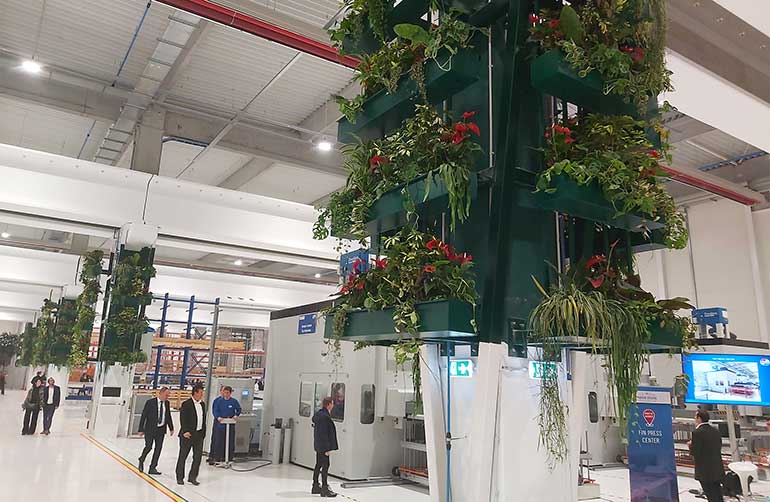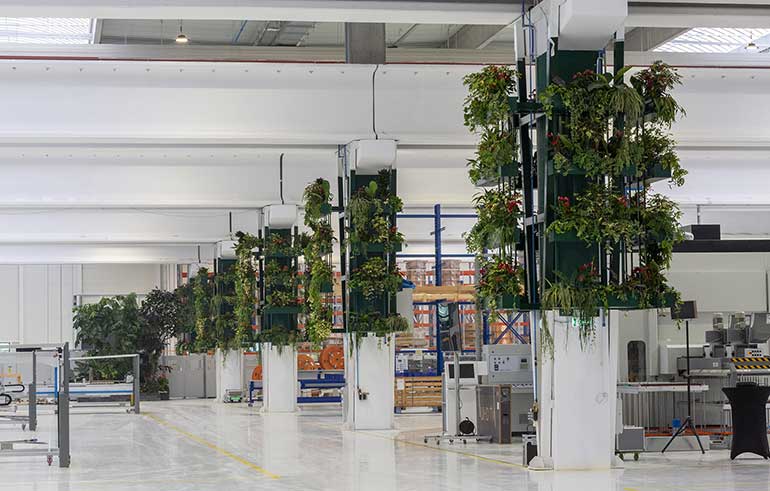Güntner takes green approach in new “megafactory”
18th December 2019
ROMANIA: German heat exchanger manufacturer Güntner has incorporated a “botanical garden” in to its new 30,000m² “megafactory” in the Transylvanian city of Sibiu.
The new factory – Güntner’s largest – puts worker wellbeing at the centre of the development, with a focus on sustainability and a design to create a pleasant and productive environment.
A botanical garden, natural plants and water features are incorporated in the building and the architectural design and technology optimises natural light in the workspace. Plant life is also used to produce clean air and a healthy atmosphere.

The grand opening event for the Sibiu II Megafactory on December 7 was attended by over 500 guests, including political and business leaders from around the world. A high energy sound and light performance from Zoli Toth and his band ended with the spectacular unveiling of the factory floor, which includes the world’s first botanical garden to be integrated in an industrial environment.
Guided tours were hosted by up-and-coming young professionals from the Güntner Group organisation, and celebrations continued into the evening with music from the Sibiu Philharmonic Orchestra and DJ Dani Blanco.
The unique environment of the factory is the result of a collaboration with partner organisation, the Austrian Therme Group, who design, develop and operate the world’s most advanced wellbeing resorts.
With a newly designed production line, the Sibiu factory is said to provide the flexibility needed to accommodate future production challenges and ensure sustainable, reliable deliveries in the long term.
The company’s Sibiu I plant, established in 2015, was already the group’s most automated plant, and the new facility will open up expanded production capabilities. Cutting-edge technologies used include highly automated, self-loading sheet processing centres which determine production steps using artificial intelligence systems. Autonomous intralogistics systems, including mobile industrial robots (MIRs), will optimise the delivery of parts between work stations.
The pressure testing system has been designed to meet the demanding technical and safety requirements for refrigerants with high operating pressures and, for the first time ever, laser technology and robotics will be used on a large scale to improve every stage of the process.

The use of natural plants in the fabric of the building, natural light and large green areas, both on the supporting pillars in the main production hall and in separate island areas, are designed to create a unique climate for staff. Research has shown that working in a natural environment has a profoundly positive impact on health and happiness. Güntner says this approach will be applied throughout the Group to ensure industry-leading productivity and to benefit customers world-wide.







